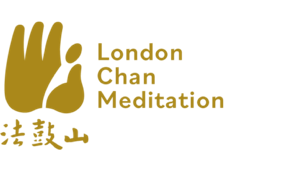What is Chan?
Chan refers to our intrinsic nature of freedom, expressed in terms of wisdom and compassion. Realization of Chan is the direct personal awakening to the interconnectedness and dynamics of life, beyond the dualism of language and concepts, free from self-reference. For this reason, there is a saying, “Chan is not established on words and language.” Yet Chan masters freely uses words and language to benefit people and the world. Chan is also one of the schools within Chinese Buddhism popularly known as “Zen” in Japanese. As a school, Chan has a history dating back to 7th century CE in China, later transmitted to Japan in the 13th century.
The teaching starts with facing the self, accepting the self, maturing the self, and eventually letting go of the self, which is awakening of wisdom and compassion that leads to harmony, peace, and compassion for the world. Letting go of the self does not mean we no longer know who we are or cannot use our intellect, but means experiencing the world without the colored lens of rigid self-referential views, opinions, and experiences that give rise to vexations and distort how things actually are.
Chan teaching encompasses four key elements: confidence, understanding, practice, and awakening. Confidence is faith in oneself and practice. Understanding refers to the insights gained on the path of practice. Practice transforms our negative habits and distorted views. Awakening is the actualization of wisdom and compassion. These four elements are inseparable and mutually inclusive.
Chan Practice in Daily Life
Practice should not be separated from daily living. Proper practice includes cultivating mindfulness, compassion, and wisdom. Be aware of your changing mental and physical conditions. See how they affect your thoughts, words, and actions. In all our actions of body, speech, and mind, we should consider whether our intentions are beneficial to others. In this way, we can check ourselves before acting. If we put other people before ourselves, self-referential feelings will not arise as frequently.
Considering others is as much a form of practice as formal seated meditation. Sentient beings have their own karmic causes and conditions, their own merits and virtues, their own karma. You cannot change them, nor can you take on others’ karma. Of key importance is your intention. You should sincerely try to help others, whether or not you succeed. Do not do anything that will make you feel tense, tired, or miserable. If you whip yourself all the time, you will be no use to others or yourself. Use meditation as a supporting discipline and Buddhadharma as your guide. Do the best you can, but don’t push too hard.
You can practice in any situation. During your busy day, try to find a few moments to stop, sit, relax, and clear your mind. You need not always sit on a cushion to practice for thirty minutes. You can do your practice anywhere, at anytime, at your desk, in a car, an elevator, or train, right now. Pick five times or situations to practice the “one-minute Zen” method, which is for one minute relax your body and mind and be completely with tha task at hand. If you pick 10am as one of your five “one-minute Zen” practices, then when 10am comes just relax and be with whatever you happen to be doing. If you pick going up the elevator as one of the situations for daily practice, then in the elevator ride just stand there and scan your body to make sure your body is fully relaxed. Let clarity and a gentle smile arise from within; allow your body and mind to refresh itself. if you do this everyday, the power of your mindfulness and focus will increase and these five moments will start to have a positive impact on the rest of your day.
The Benefits of Meditation in Daily Life
By Master Sheng Yen
(8 mins, Chinese with English subtitles)


